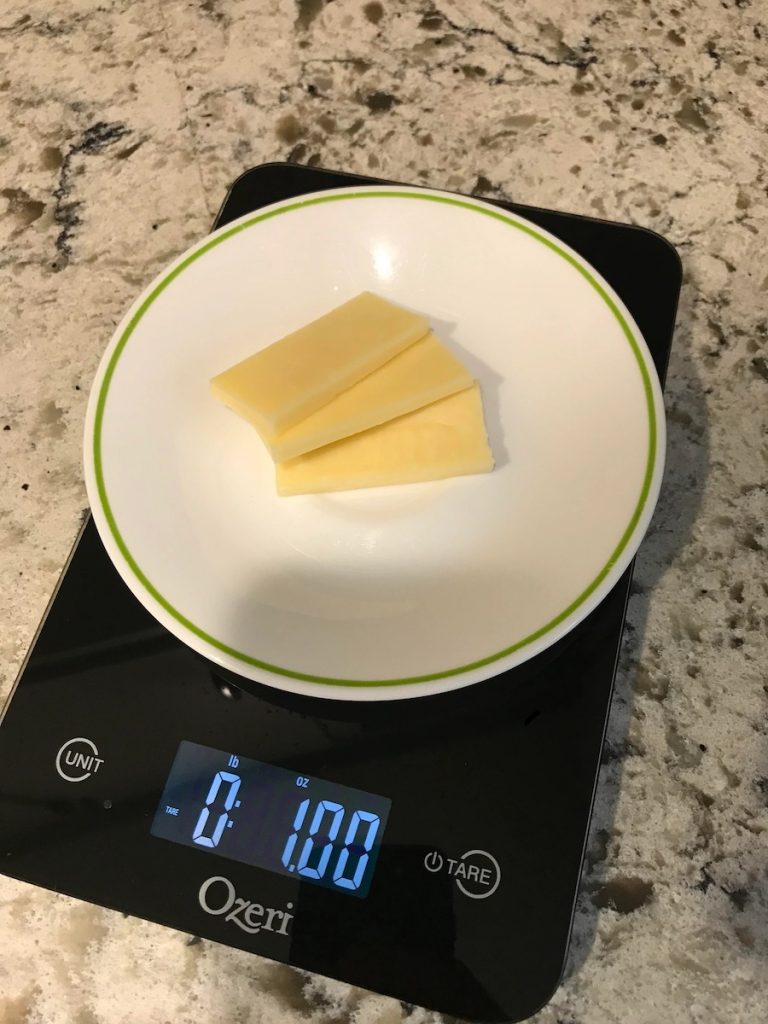Last Updated on January 17, 2024 by Aaron
Parmesan cheese is a hard, salty cheese made from cow’s milk. It can be safely consumed by humans as a snack or an ingredient in various types of dishes, but the same cannot be said for our furry canine friends.
While many other kinds of light cheeses such as mozzarella and cottage cheese are okay for dogs to eat in moderation, parmesan is not toxic to dogs but should generally be avoided. That’s because parmesan is very high in fat and salt, two ingredients that can be difficult for a dog’s digestive system to handle.
Table of Contents
Too Salty: How much parmesan is too much for dogs?
As we have mentioned about the salt content of different parmesan brands, some parmesan is especially high in salt — read more in this article. This makes it a particular cause for concern with dogs, as their bodies cannot process very much salt and too much can lead to an electrolyte imbalance. It’s best to avoid giving parmesan cheese to your pup altogether.
The recommended daily sodium intake for a typical adult dog is about 100-300 mg for every 100g of food (or 0.3% sodium), so if you do give your pup parmesan cheese, make sure to monitor the amount closely — even just a few small bit of parmesan can contain more than this recommended daily intake for your pet.

According to the USDA, 1 oz (~28g) serving of grated parmesan cheese can contain a whopping 500 milligrams (mg) of sodium. That’s about 2-3 small slices of treat-size parmesan, see the image above. This is equivalent to the amount of sodium recommended in a single day for an adult human, and far more than the daily maximum intake recommended for dogs. You could also find the low-sodium parmesan if you are in luck, which is a much better option and is usually below 100mg. Check the nutrition label and make sure per oz serving is lower than 100mg.
But most of the popular parmesan brands like Sargento shredded parmesan and Belgioioso parmesan wedge offer about 260 sodium in their parmesan cheese per ounce — which is still somewhat high for our pets. Parmigiano Reggiano is an Italian DOP cheese with stricter regulations to follow and is generally more consistent across the brands. It tends to have a slightly lower sodium content at around 180 mg per ounce.
If you’re unable to resist the temptation to give your pup just one little morsel of parmesan cheese, make sure it is in very small quantities and monitor your pet for any signs of digestive distress. If your pup vomits, has diarrhea or becomes lethargic after eating parmesan cheese, consult a veterinarian immediately.
Lactose Content: Your dogs might be lactose intolerant
It’s also important to consider the fact that many dogs can be lactose intolerant just like people. This means that they cannot process the milk sugar (lactose) found in parmesan cheese, which can lead to digestive upset and other health issues. Parmesan is an aged cheese and is low in lactose, but it can still contain some — anywhere from 0.01% to 5% lactose content — and it varied from brands to brands. Read our previous post here, to find out which parmesan has lower lactose.
While the lactose content of parmesan is typically much lower than other dairy products, it can still be problematic for dogs with a history of digestive issues or an intolerance to lactose. If your pup has diarrhea after eating parmesan cheese, they may have a lactose intolerance and should avoid this food altogether. To find out if your pup is lactose intolerant, consult a veterinarian and get tested.
High Fat: Parmesan is high in fat
In addition to being high in sodium, parmesan cheese is also quite high in fat — about 10 grams of fat per 1 oz serving according to the USDA. National Research Council (NRC) stated that an average adult dog needs between 13.8 to 82.5 grams of total fat per day. That’s easily one-fifth of the recommended daily fat allowance with just a few bite-sized parmesan cheese.
Too much fat in your pup’s diet can cause digestive distress and may even lead to obesity or more serious health issues like pancreatitis. If you do choose to give your pup parmesan, make sure it is only an occasional treat and be mindful of the amount you give them.
Key Takeaway [and bonus]
Parmesan cheese can be a tasty treat for your pup, however, it is high in sodium and fat which can be difficult for some dogs to digest. If you do decide to give your pup parmesan cheese, make sure it is only an occasional treat and always check the label for the sodium content.
Like other dairy products, parmesan is healthy for dogs in moderation. It is a source of omega fatty acids, which can help keep your dog’s coat healthy and shiny, and helps to prevent skin lesions and can also reduce inflammation. The present of probiotic bacteria in parmesan are beneficial for your dog’s digestive system and can help to reduce diarrhea, improve their gut health and stool quality.
Look out for the signs of excessive thirsty or digestive upset, such as vomiting, diarrhea or lethargy after your pup has eaten parmesan cheese. Alternatively, you can opt for other healthy snacks like plain cooked chicken, boiled eggs or apple slices that are just as tasty and much safer for your pup.

